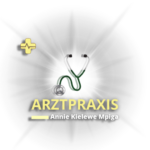During the health check-up for adults, health risks and burdens are recorded and evaluated. The check-up is quick and uncomplicated.


CANCER PREVENTION
Cancer screening enables the early detection of cancers so that they can be treated in time
A malignant neoplasm in the human body is generally referred to as a cancer or tumor.
Cancer can basically occur anywhere in the body – depending on the individual cancer risk. Depending on the body region or organ, regular check-ups should be performed for early detection of cancer.
Cancer screening – of men from the age of 45 – is used for the early detection of colorectal carcinoma and prostate carcinoma. The following examinations are performed annually:
- Targeted anamnesis
- Inspection and palpation of the external genitalia
- Palpation of the regional lymph nodes
- Palpation of the prostate and rectal mucosa
Cancer screening – from the age of 50 – is used for early detection of colorectal cancer. The following examinations are performed.
- Rectal palpation (annually)
- Stool examination for occult blood (annually from age 50-55).
From the age of 55, you can choose to have a colonoscopy (every 10 years) or a stool examination for occult blood (every 2 years).
YOUR BENEFITS
Cancer screening enables early detection of cancers so that they can be treated in time

